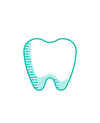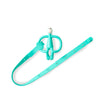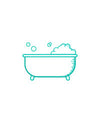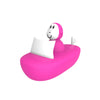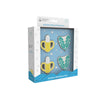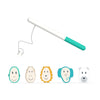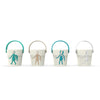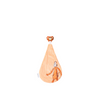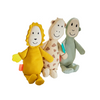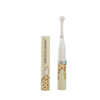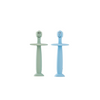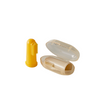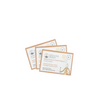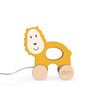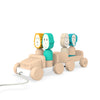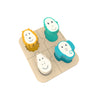The first 8 signs of teething
Teething is a major milestone in your baby’s development, but it can also be a challenging time for both parents and little ones. The process usually begins between 4 and 7 months of age, though it can vary from baby to baby. While some may experience mild discomfort, others might have a tougher time. Knowing the early signs of teething can help you provide the best care and comfort during this period.
Common Signs of Teething
1. Excessive Drooling
One of the earliest and most noticeable signs of teething is increased drooling. If your baby suddenly seems to be producing more saliva than usual, it could be a sign that teeth are beginning to push through. A Matchstick Monkey Muslin or Matchstick Monkey Soother & Comforter can help to wipe dribble to prevent irritation around the mouth and chin.
2. Swollen or Sensitive Gums
As teeth start to emerge, your baby’s gums may appear swollen or slightly inflamed. Gently massaging their gums with one of our Finger Toothbrushes to help ease discomfort.
3. Visible Tooth Below the Gum
If you notice a small white bump just beneath the gum surface, this means a tooth is about to make its appearance.
4. Increased Irritability
Teething can cause discomfort, making babies fussier than usual. If your little one is more irritable, restless, or difficult to soothe, it could be a sign that their teeth are beginning to come through.
5. Disrupted Sleep Patterns
Teething pain can make it harder for babies to fall asleep or stay asleep.
6. Biting and Chewing on Everything
Teething babies tend to explore relief by biting and chewing on anything within reach—including their fingers, toys, or even your shoulder.
7. Rubbing Ears and Face
Your baby may rub their ears, cheeks, or chin more than usual. This is because the discomfort from teething can sometimes radiate to different areas of the face. While this can be a normal teething symptom, always consult a doctor if you suspect an ear infection.
8. Decreased Appetite
Sore gums can make eating uncomfortable, leading some babies to refuse food or drink less milk than usual. If this happens, try offering softer foods or a chilled teether to provide some relief before mealtime. All our Matchstick Monkey Teethers can be chilled in the refrigerator.

